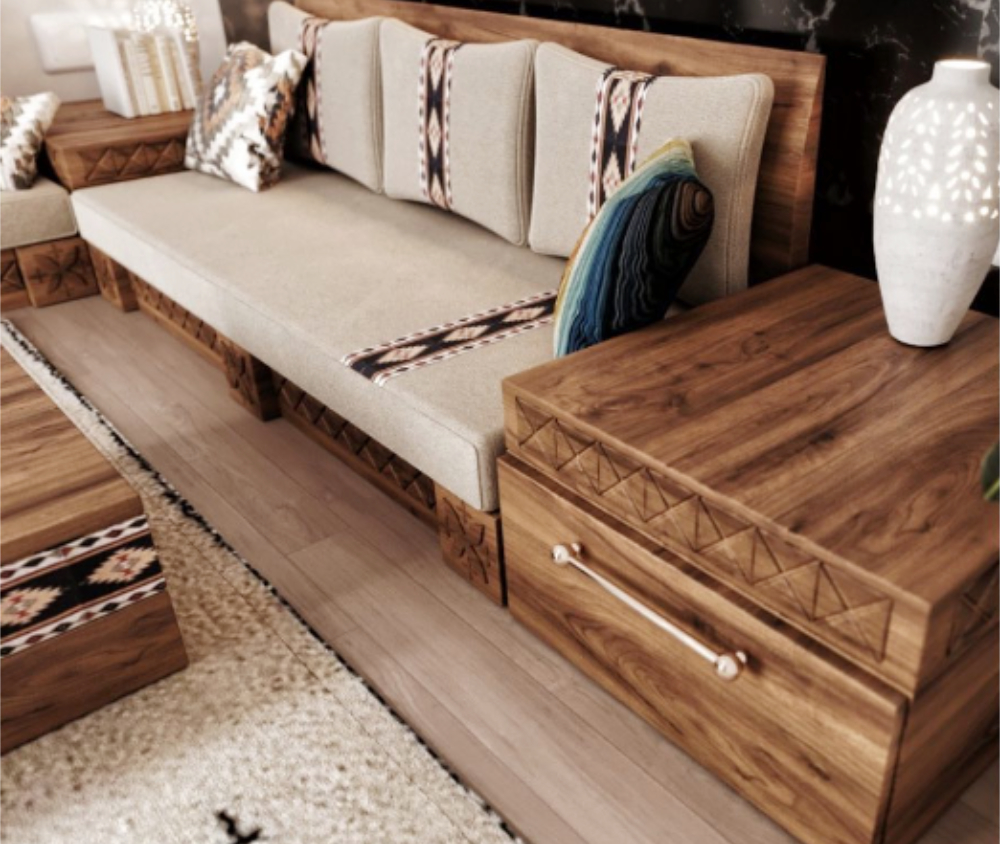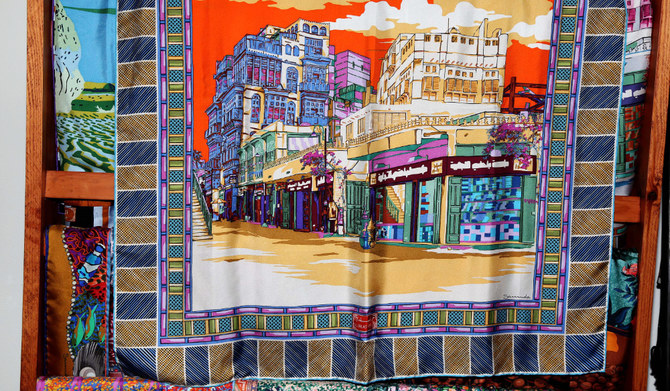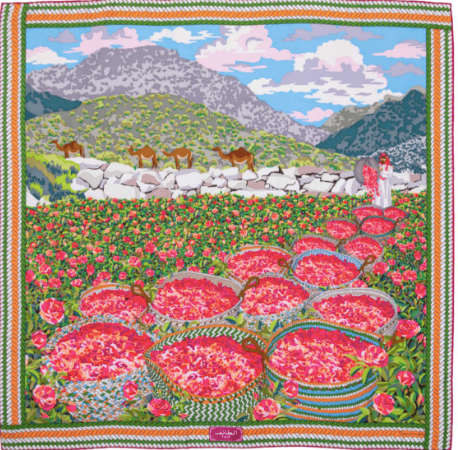JEDDAH: Saudi design companies are increasingly creating products inspired by the Kingdom’s history, heritage and traditions.
One is Samuda that aims to promote local art by designing unique gifts and souvenirs featuring largely undiscovered gems of the country.
The brand is named after a village in Al-Qassim province that has a spectacular landscape carpeted with lavender.

Saudi jewelry brand, Charmaleena, has pieces also reflecting local culture, Islamic architecture, the emblem of Saudi Arabia, and the Two holy Mosques. (Supplied)
“It is a remote area but in spring it turns into a complete purple scenery of lavender flowers,” a member of the Samuda design team told Arab News. “This area is also famous for white camels, it is also a spot where campers come to enjoy the view, which is captured in the very first pieces of Samuda’s designs.”
The brand, established in 2020, has also incorporated other Saudi landscapes and heritage items into its products, including the rock formations of AlUla, the Arabian art of Al-Qatt Al-Asiri, the historic Diriyah and the ancient architectural wonders of Rijal Alma.
The rose fields of Taif, marine life and coral reefs of the Red Sea, the beauty of the Arabian leopard, Saudi coffee and the ancient doors from the Hijaz are also used for inspiration.

Another local brand, Desert Design, aims to promote the beauty of artisanal work in Saudi Arabia through their home interior pieces. (Supplied)
Samuda’s products include ties, shorts, ponchos, caps, scarves, throws, wooden boxes and trays, playing cards and jigsaw puzzles. Prices start at SR150 ($40) and the most expensive is SR25,000 ($6,649). Throws made from 100 percent pure cashmere are among the highest-priced items.
All products are designed in Saudi Arabia and manufactured in Europe.
Saudi jewelry brand, Charmaleena, has pieces also reflecting local culture, Islamic architecture, the emblem of Saudi Arabia, and the two holy mosques.
HIGHLIGHTS
• Samuda’s products include ties, shorts, ponchos, caps, scarves, throws, wooden boxes and trays, playing cards and jigsaw puzzles.
• Charmaleena has launched over 20 collections comprising many multifunction pieces.
• Desert Design products are 90 percent handmade, including carpets, doors, sofas, engraved tables and cushions.
The Jeddah-based brand was co-founded by two Saudi sisters, Leena and Hala El-Khereiji, designer and creative director, and managing director, respectively.
“All our collections tell a story, and each piece within a collection continues to write and develop that story. Our pieces are handmade and designed with the intent of allowing a woman to showcase her individuality and self-empowerment. Our jewelry evokes a sense of distinction and beauty in a woman,” said Leena.
The company has launched over 20 collections comprising many multifunction pieces.
The Salam collection offers two of the brand’s most iconic necklaces inspired by the holy mosques in Makkah and Madinah.
The necklace inspired by Makkah features a small black cube representing the Kaaba in black onyx and 18 karat gold, and seven moving diamonds; and the second necklace features the green dome representing the Prophet’s Mosque in Madinah in green aventurine, white onyx, 18 karat gold and diamonds.
In 2012, Charmaleena won the British Council’s Young Creative Entrepreneur in the Kingdom award.
In 2014, the brand was honored by Forbes Middle East for being one of the top 100 creative entrepreneurs shaping Saudi Arabia’s future.
Another local brand, Desert Design, offers products and services with a Saudi touch.
Based in Alkhobar, it was founded by Qamar and Farid Bukhari in 1990 to promote the beauty of artisanal work in Saudi Arabia through their home interior pieces that are 90 percent handmade, including carpets, doors, sofas, engraved tables and cushions.
The owners stated: “The aspect of our own Saudi heritage built and redesigned in such a way that enhances the piece of furniture into an art object. The brand is a way to revive the forgotten arts by encouraging craftsmen to continue producing such arts, so people can appreciate the uniqueness of such furniture.”





























